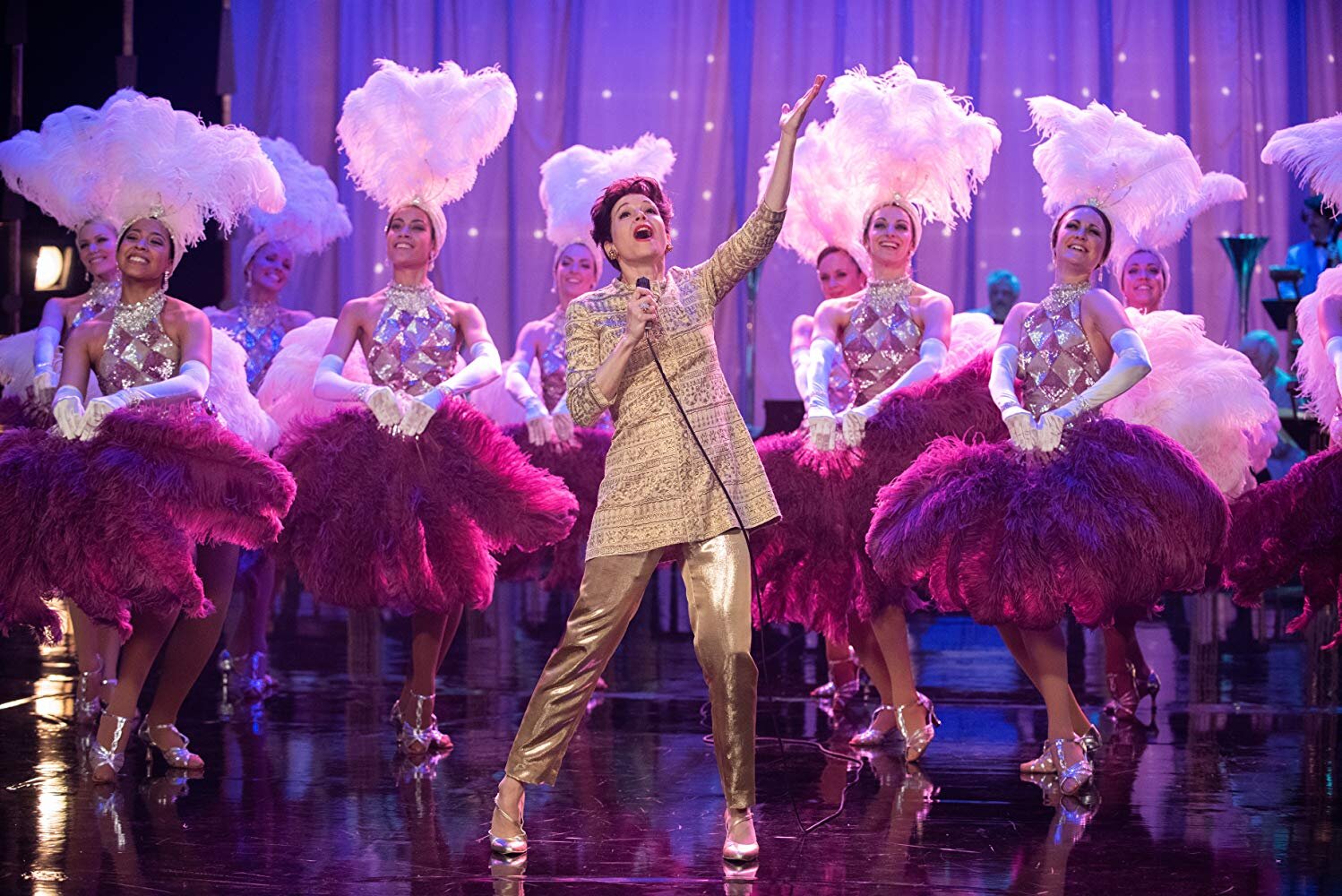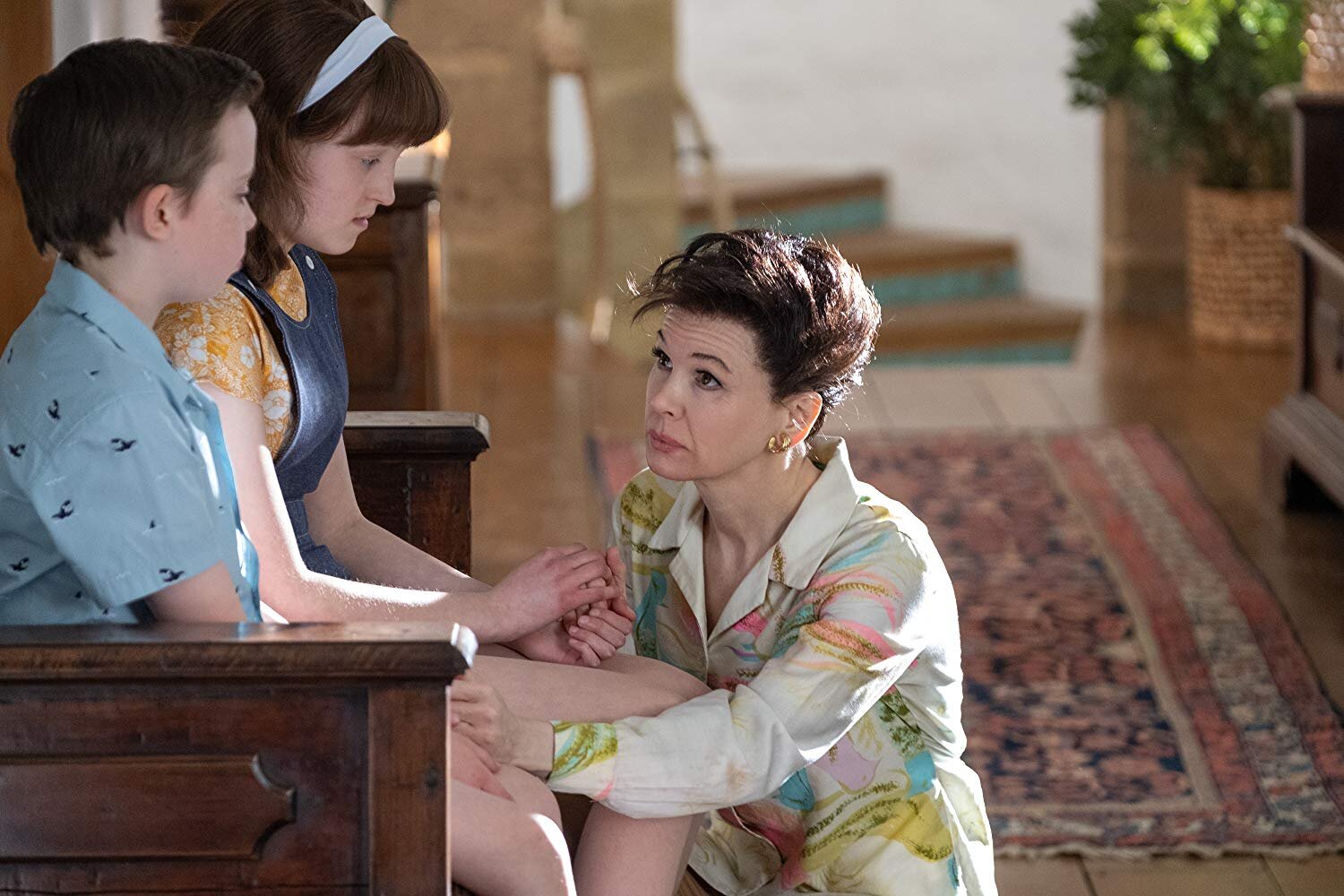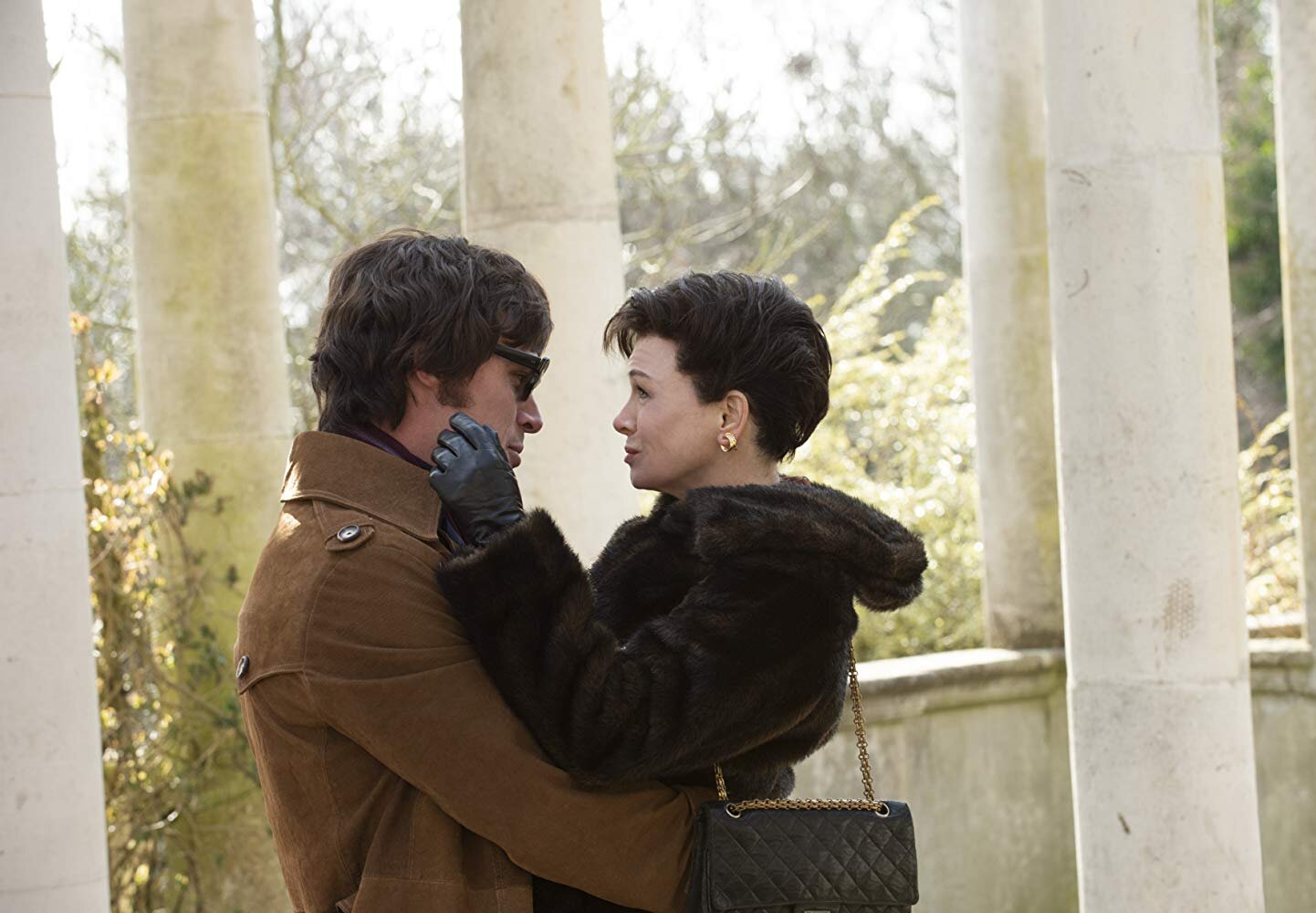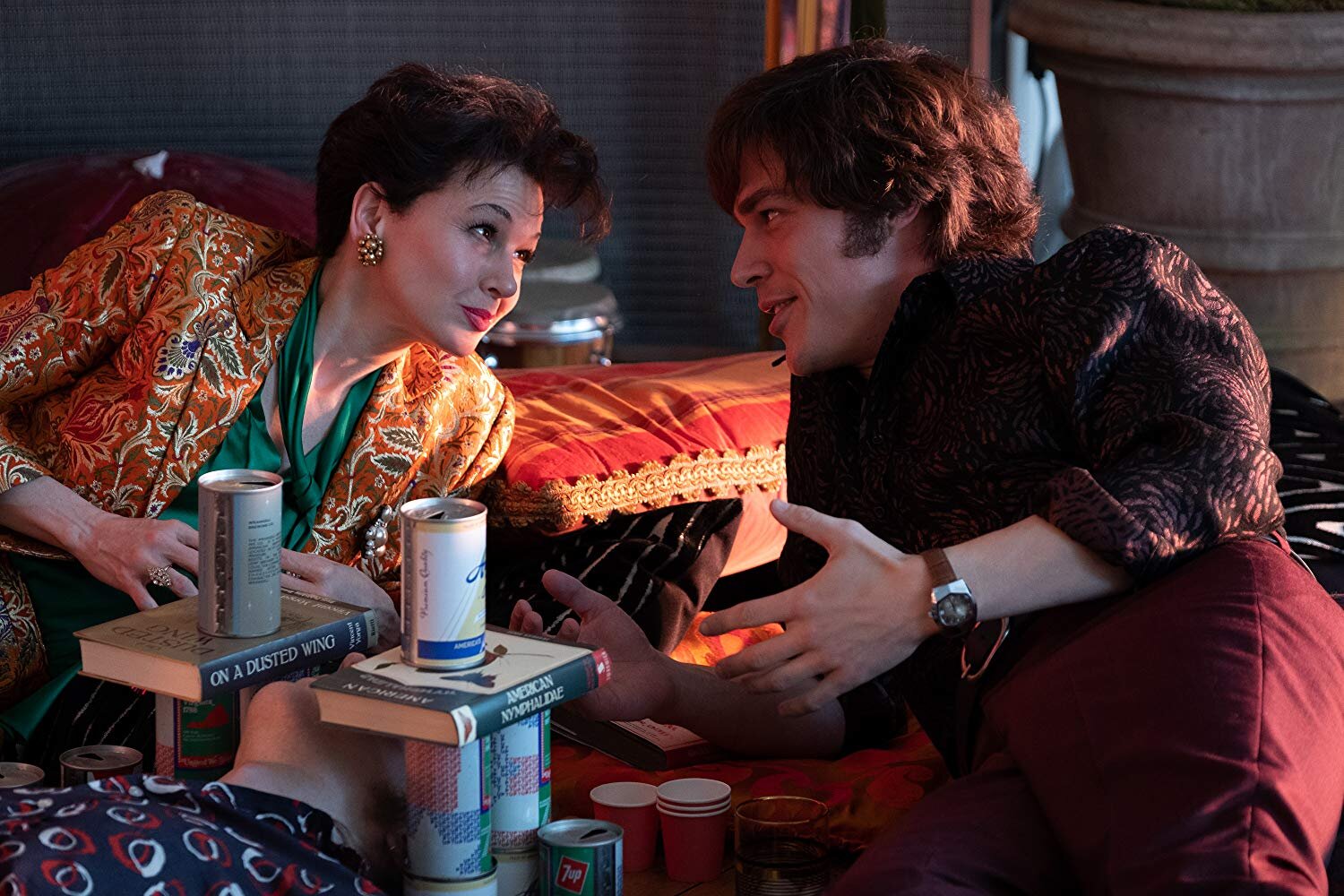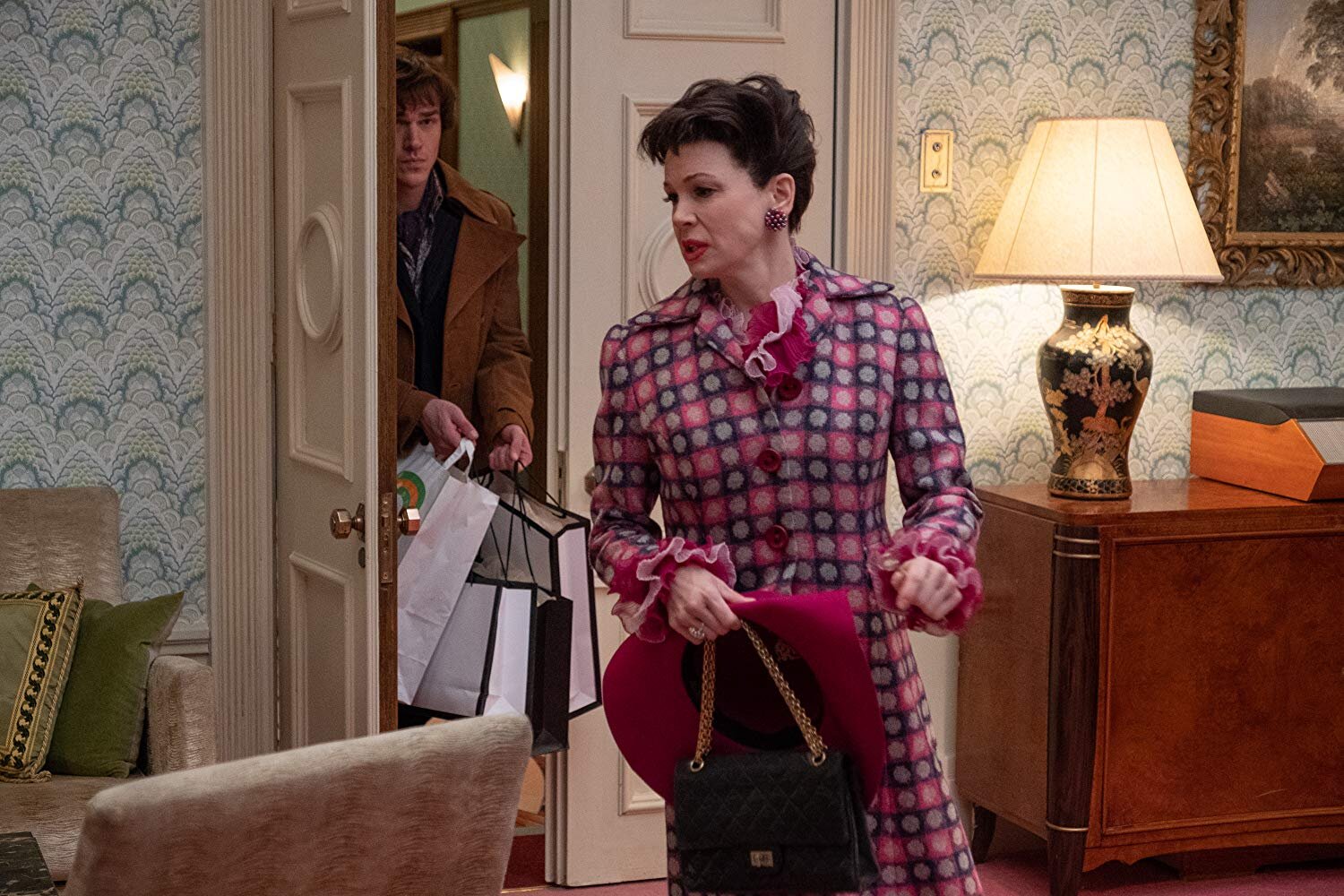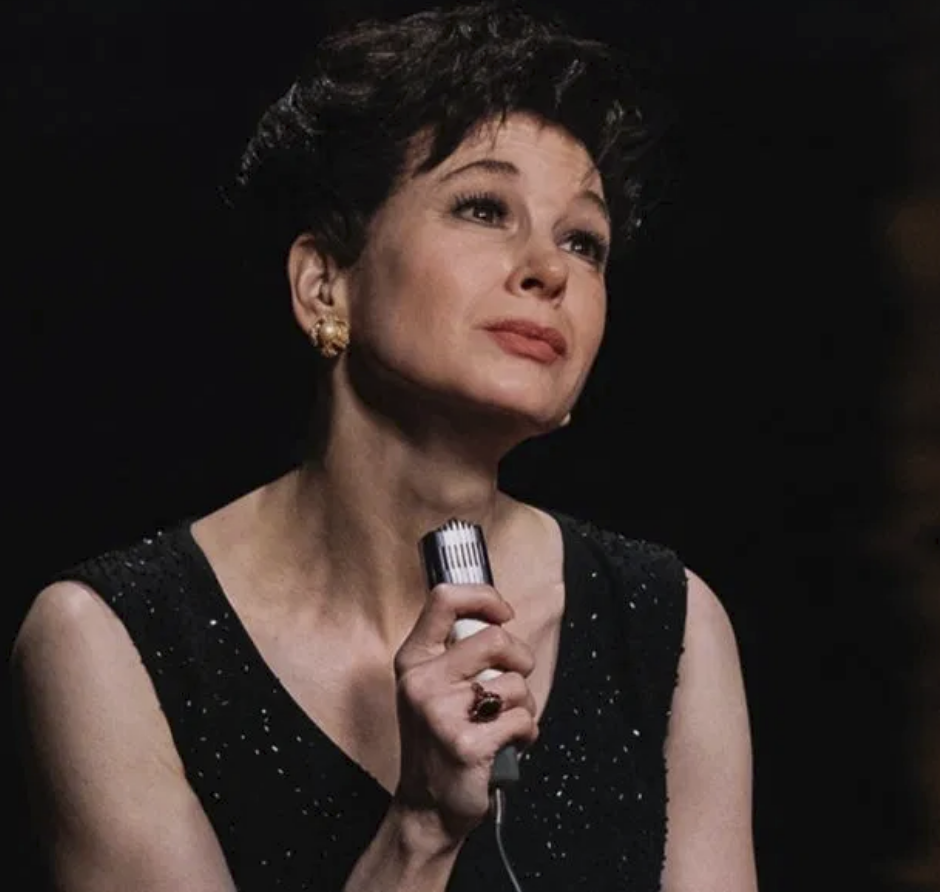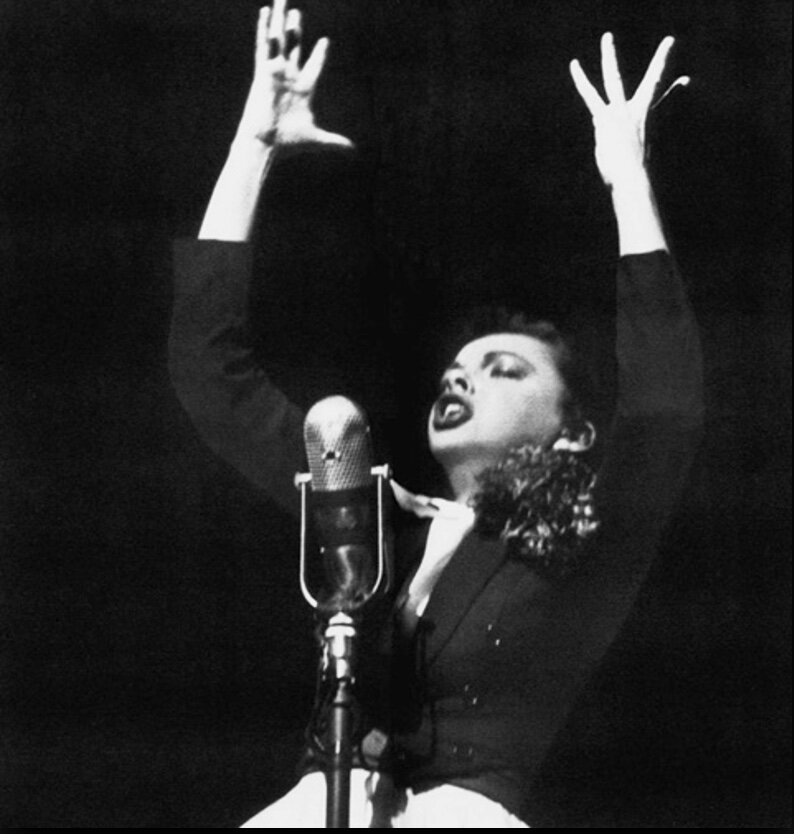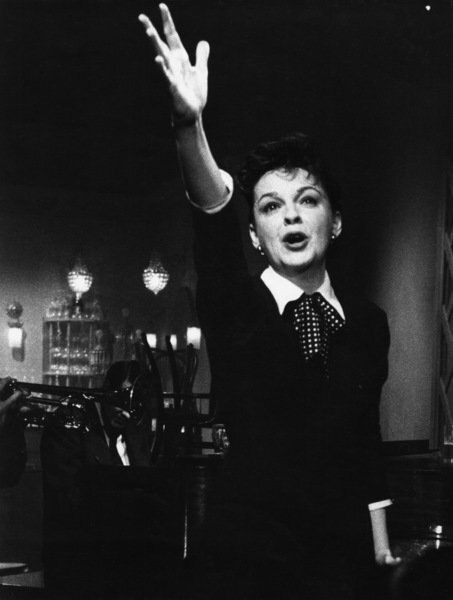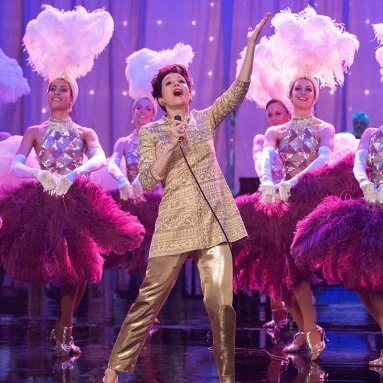Renée Zellweger: I AM Judy
Renée Zellweger as Judy Garland in Judy dir. Rupert Goold - Courtesy of Universal Pictures
Written by Editor-In-Chief, Liberté Grace
Renee Zellweger’s Oscar-worthy performance in Judy directed by Rupert Goold, was always a risky renaissance, even for the Academy Award-winning actor who left the Hollywood spotlight for six years. At first, not even Zellweger understood the magical thinking that went behind the idea of transforming her into the immutable screen legend, Judy Garland; who graced concert stages 1,100 times and starred in 34 movies, including the beloved classic, The Wizard Of Oz.
Zellweger, best known for her own iconic roles in Bridget Jones, Jerry Macguire and Chicago, found herself far away from home when she was tasked with bringing the star back to life.
During the Australian premiere of the film, she revealed how she felt about being approached for the role: “I thought it was hilarious! I didn’t know why they had sent the script my way. My friend David Livingstone, who I’ve known for a while (a producer), we worked together on Bridget Jones ages ago, called me. I thought, ‘Wow, what an audacious concept. It’s a ridiculous prospect.’”
When discussing the audition process, with a softly-spoken old Hollywood charm, she admits, “There was no audition. Maybe I was just available, I don’t know. He had my phone number? That might have been it. He said, ‘Why don’t you just come to London? We’ll just talk, and then, we’ll try a couple of wigs, take some pictures, and try a few songs at Abbey Road.’ And that seemed like a really good reason to go to London to me.”
Judy (2019) official trailer - courtesy of Universal Pictures
Adapted by Tom Edge from Peter Quilter’s play End of the Rainbow, Judy is not the full career-spanning film, that audiences may have expected. Instead, it focuses its rose-coloured lenses on Garland’s final residency in London—interweaving two bookends of her infamous career—her teenage years under the control of MGM mogul Louis B. Mayer, and the alcoholism, homelessness, failed marriage, and fight for her children, that plagued her final days.
Zellweger explains that, for her, Judy was not “just another film project”. She said, “This didn’t feel like a movie experience, it didn’t feel like a project—getting ready for the role. It was just this sort of immersion into the legacy of her work and exploring her arc; the archive of all that magic she left us. It was this celebration of her.”
Despite the sugar-coated treatment of Garland’s story, the film makes for a sumptuous celebration—clearly targeted towards Judy and her fans—which, 50 years since her passing, is, perhaps, the nobler approach to a tribute for the girl who will forever skip down the yellow brick road in our memories, than producing yet another brutal examination of Garland’s rise and fall, designed to please the critics, “Come rain or come shine”.
Goold interweaves the two very separate worlds of Judy Garland as the public figure, and the Judy who the writers imagined she was as the human being behind closed doors; a woman who wanted nothing more than to be safe and loved with her own children. In the words of the character of Judy in the film: “Everybody has their trouble and I’ve had mine. I just want what everybody wants. I just seem to have a harder time getting it.”
Elaborating on their more compassionate approach to her character, Zellweger enthused, “Every single person who worked on this film was motivated by an attachment to, an appreciation for, and a love for Judy. We just wanted to celebrate her and point to her importance. And that’s what it felt like. It was greedy and it was spoilt-rotten to get to do that and to call it a job. I feel like we’re all sharing in this minute of celebrating her 50 years after she passed too soon.”
When asked whether she had any fears about stepping into Garland’s iconic shoes, she laughed and said: “It was off the page! But, I just applied a really substantial layer of denial. I pushed that aside and I just started to be really greedy. Greedy for more information, more pictures, more stories, more interviews, more of just whatever I could find.”
Zellweger readily admitted that she created her portrayal of Garland through “theft,” watching Youtube videos of the star and working regularly with a vocal coach, often late into the night. “Well, I don’t call myself by the character’s name or insist on it. I don’t do that. But, certain things become a habit just out of repetition. That’s good because you don’t want to be thinking about all those things when you’re trying to tell a story, ‘cause then you’re a liar, right? So, you want those things to be in your body,” she said.
Renée Zellweger as Judy garland in judy (2019) SINGING ‘OVER THE RAINBOW’
When Zellweger struts onto the stage on-screen as Garland in Judy, the boundaries crossed between Garland and Zellweger’s prodigy become difficult to discern, as she embodies the bitter-sweet effervescence and sadness of a fading star clutching to life. As if by magic, the audacious amalgam of the two, in its seeming impossibility, not only succeeds in conjuring the spirit of Garland for one final swan song but also makes her essence sparkle for a new generation.
While Zellweger previously sang on-screen in her acclaimed Academy-nominated role as Roxie Hart in musical drama Chicago, she shies away from the suggestion that her track record was evidence of her ability to pull off this role. “Well, that’s different, you know? That’s me and my little voice that I was born with no real training, except for ‘Chicago camp,’ where we sort of worked out the numbers and learned the music to the songs over a month,” she said.
“She’s a proper performer—the greatest who ever lived. So, it seemed like the worst idea I’d ever heard. This was something else.”
Garland has become a symbol for the lost innocence of once child stars who fell victim to the intense pressures of the Hollywood system. Not unlike the icon she portrays, in 2010, after winning every lauded industry acting award possible, Zellweger admitted in an interview with Vulture earlier this year, that she had become depressed. “I recognised that I spent 99 percent of my life as the public persona and just a microscopic crumb of a fraction in my real life,” she said.
Today, at 50, her long hiatus has proven to be a wise choice. While it’s impossible for a face as recognisable as Zellweger’s to completely disappear into the rare wattage of what Judy Garland brought into this world, what she does achieve, is a heart-felt tribute to the beloved performer, that metamorphoses her as an artist—known more widely for her earthy and relatable charm—into a stand-alone genius.
Zellweger goes on to recount how she trained for over a year to prepare to sing Garland’s greatest hits, including; Come Rain Or Come Shine, The Trolley Song, and of course, Over the Rainbow. “We started talking at Abbey Road in 2017. I went home and started working with a vocal coach and howling in my car where the vocal coach couldn’t hear me, so he wouldn’t quit me,” she said, laughing.
In addition to her detailed physical transformation into the star, the challenge of matching Garland’s vocal range lead to an unexpected personal journey for Zellweger, of reclaiming her own voice. “I had to strengthen my voice and stop talking up here,” she said, pointing to her face. “I didn’t know that for maybe 30 years I hadn’t been speaking in my lower register. It was a really interesting emotional experience because I didn’t know that you could change that,” she said.
After a pause, she added, “Well…alright, you wanna get deep? Well, I didn’t realise that, to build it—you have to open it. I didn’t realise that you have to clear it. I guess this is a place where a lot of people hold a lot of, I don’t know if it’s pain or history. I think it’s that thing where you’re making okay things that you are not really okay with, and as you do it, you start progressively speaking in a higher-toned voice—because you’re trying to make out that, ‘Everything’s fine. It really is!’”
“There’s no singing when you’re living up here. So, you have to break that apart. It has to go somewhere and apparently it comes up out of your face. So, thank you, Judy: I found my voice.”
Zellweger believes that she had supernatural assistance on the set of Judy from the dame herself. She said, “I’m not kidding when I tell you her essence was alive on our set. You know, in the conversations. Rupert, the director, called it ‘mining for treasure,’ where we were all different departments together looking for little bits that seemed so important to collect in conjuring her essence. With those conversations going in her music and listening to her voice all the time, it just felt—it was palpable. We were all sort of wearing her around us.”
In tribute to the girl frozen in time who magically clicked her ruby red slippers to find her way home; Zellweger delivers the best performance of her career to date as her comeback to Hollywood, and is expected to be nominated and win an Oscar for her portrayal of the star, who gave the world a reason to believe in magic.
Judy was released in theatres on the 27th of September in the United States. You can follow Judy on Instagram and Facebook to find out how to buy tickets to see the film in your local area.
You can follow I AM FILM on Instagram (iamfilmofficial) #IAMFILM #MastersOfFilm and Join our list to receive more news and views by the Masters Of Film.
Special thanks to Grace Neave for transcribing this interview and Gretel Killeen, the host of this conversation.
About the filmmaker
Renée Zellweger
Actor, Producer
Renée Zellweger began her acting career in smaller roles in Reality Bites (1994) and Empire Records (1995). Her big break came when Cameron Crowe was busy casting his next film, Jerry Maguire (1996), starring Tom Cruise. Renée followed her huge success with a few small independent films and starred opposite Meryl Streep in One True Thing (1998). She also took a role in Me, Myself & Irene (2000), opposite Jim Carrey. In 2000, she starred in the title role in Nurse Betty (2000), where she won a Golden Globe for Best Actress in a Comedy/Musical. In 2001, she received even more critical and commercial success in the title role in Bridget Jones's Diary (2001). She received her first Academy Award nomination for her role, which was followed by her second Oscar-nominated role in the musical Chicago (2002). She then again wowed audiences with her fierce yet warm portrayal of Ruby Thewes in the film adaptation of Cold Mountain (2003), which won Zellweger an Oscar for Best Supporting Actress, which was her first Academy Award. Her latest role as Judy Garland in Judy (2019) has received critical acclaim and is expected to receive top awards in 2020. [Source: IMDb]



